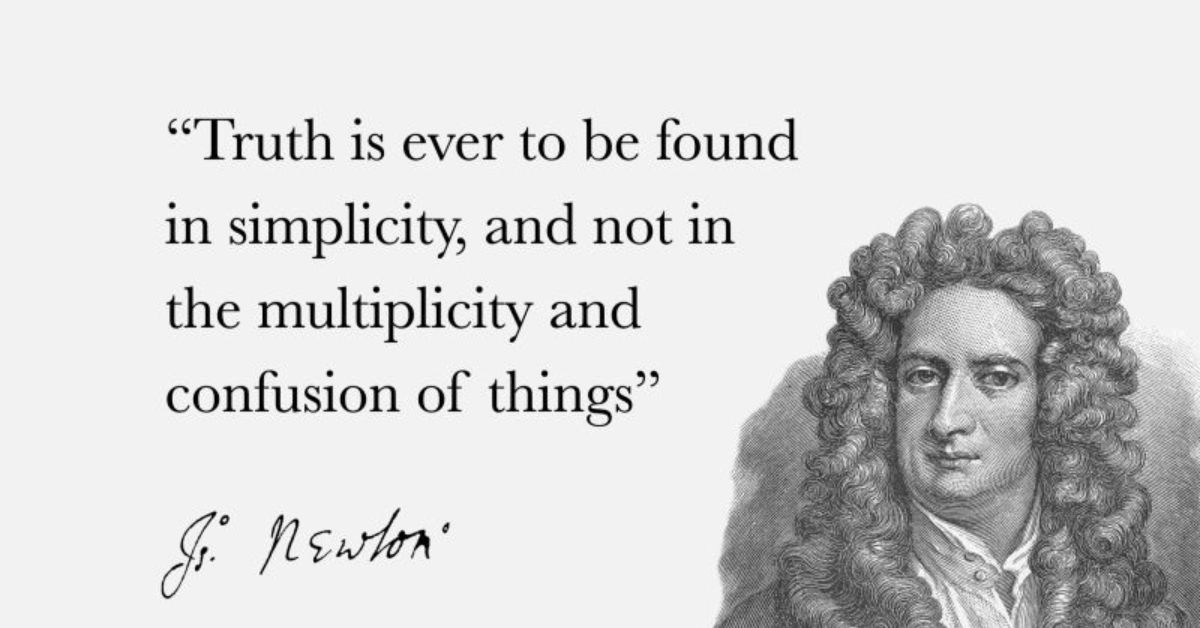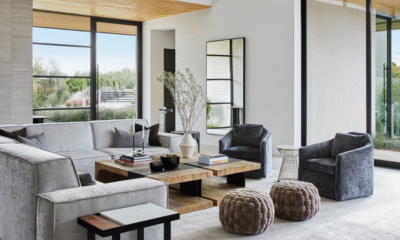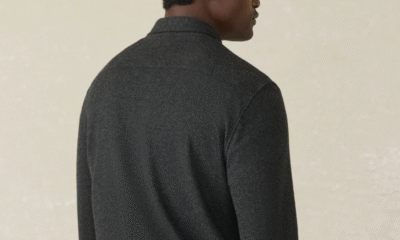EDUCATION
Discovering the True Meaning of Simpcitu in Life

Ever come across a word that doesn’t sound familiar, but somehow it feels like something you’ve always known? That’s simpcitu. It may not be in the dictionary (yet), but its essence resonates deeply in today’s complex world. Think of it as a quiet whisper in a noisy room, a gentle reminder to slow down and pay attention to what really matters.
What Is Simpcitu? An Unspoken Philosophy
Simpcitu isn’t just a quirky arrangement of letters. It’s a lifestyle, a way of thinking, a deep yearning for clarity and peace. Imagine peeling away the clutter from your life, getting down to the essence of what brings you peace. That’s the core of simpcitu. It speaks of trimming the unnecessary, cherishing the minimal, and seeking genuine joy in everyday moments.
The Origin of Simpcitu: Where It All Began
While the term simpcitu might not have a formal etymology, it seems to be a modern evolution of “simplicity,” but with added soul. It embraces minimalism, yes, but it also embraces mindfulness, presence, and authenticity. Simpcitu is what simplicity becomes when you stop trying to make it a trend and start making it a way of being.
Why the World Needs Simpcitu Now More Than Ever
In a time when we’re bombarded with notifications, to-do lists, and constant digital noise, simpcitu calls us back to center. We’ve become used to chasing more—more stuff, more likes, more approval. But at what cost? Simpcitu offers a path out of the chaos, a road back to ourselves. It’s a quiet rebellion against overwhelm and a return to calm.
Simpcitu in Your Home: Space That Breathes
You don’t need a minimalist house with white walls and one chair to live simpcitu. It’s not about bare spaces—it’s about meaningful ones. A home guided by simpcitu feels intentional. Each item has a purpose or a story. There’s air to breathe, light to see, and quiet to feel. When your space reflects your inner peace, your whole life shifts.
Daily Routines That Embrace Simpcitu
Morning coffee without scrolling. A walk without earbuds. Dinner at the table, not in front of a screen. These tiny choices are where simpcitu lives. It’s not about massive life overhauls—it’s about mindful habits that connect you with your present. Routines built with simpcitu invite peace into the everyday grind.
Relationships Through the Lens of Simpcitu
How often do we complicate relationships with overthinking, assumptions, and ego? Simpcitu brings honesty and openness to the table. It says: let’s talk, not text. Let’s be real, not perfect. Whether it’s with a partner, friend, or family member, simpcitu means showing up with sincerity and leaving judgment at the door.
Simpcitu and Technology: A Balanced Connection
We’re not going to tell you to throw your phone away. But simpcitu nudges us to ask—who’s in control here? Is technology serving your life, or stealing it? Practicing simpcitu with tech means curating what you consume, unplugging regularly, and choosing digital moments with intention instead of addiction.
The Beauty of Boredom and Doing Nothing
In a culture obsessed with productivity, boredom feels like failure. But simpcitu flips that on its head. It honors the value of stillness, the gift of unstructured time. Doing nothing becomes sacred. It’s in those quiet pauses that creativity bubbles up, that peace finds space, that clarity finally has room to speak.
Simpcitu at Work: Less Stress, More Focus
Work doesn’t have to be chaos. Even in high-demand careers, simpcit’u can be a game-changer. It encourages prioritization over multitasking, intention over urgency. When you approach your job with simpcit’u, you focus on impact rather than busyness. You protect your energy and give your best where it truly matters.
Money and Simpcitu: Spending With Purpose
Chasing more money is the norm. But simpcit’u encourages you to ask—why? What are you really trying to buy? Often, it’s peace, status, or security. Simpcit’u says: start from within. Buy less but better. Spend on experiences, not excess. Align your finances with your values, not societal pressures.
Nature’s Perfect Expression of Simpcitu
Have you ever watched a tree sway in the wind or waves lap the shore and felt instantly calm? That’s simpcit’u in action. Nature doesn’t strive—it simply is. It offers constant reminders of beauty in simplicity. By spending time outside, we reconnect with the original blueprint of peace.
Creativity Flourishes in Simpcitu
Artists often talk about the “blank canvas” as both terrifying and exciting. Simpcit’u gives you that canvas. It clears away the noise so creativity can rise. Whether you’re writing, painting, or brainstorming new ideas, simpcit’u helps you trust the process and let inspiration flow freely.
Parenting and Simpcitu: Raising Present Kids
Modern parenting often feels like a race. But simpcit’u invites a slower, more connected approach. It’s not about perfect playrooms or screen-time limits—it’s about presence. It’s reading the same book for the hundredth time, laughing at silly jokes, listening fully. When you model simpcit’u, kids learn peace by example.
The Spiritual Side of Simpcitu
Many spiritual paths point toward stillness, detachment, and clarity. Simpcit’u aligns with these ideals. Whether you’re religious or simply seeking deeper meaning, simpci’tu can be your companion. It invites quiet reflection, sacred routines, and a heart uncluttered by excess. It turns down the volume so you can hear your soul.
Letting Go: The Heart of Simpcitu
At its core, simpcit’u is about release. Releasing the need to prove, the urge to compare, the habit of overthinking. It’s about trusting that less can be more. That slower can be better. That peace is found not in the next thing, but in this moment. Letting go doesn’t mean giving up—it means making space for what truly matters.
How to Start Living with Simpcitu Today
You don’t need to wait for a new year, a life crisis, or a spiritual awakening to start. Simpci’tu begins now. Maybe it’s cleaning out a drawer, or turning off your phone for an hour. Maybe it’s saying no to something that drains you. Small steps count. The point is to begin. Each choice you make can either add clutter or create peace.
You Don’t Need Permission to Choose Simpcitu
One of the myths about slowing down is that we need someone else’s approval. But simpci’tu isn’t a trend or a fad. It’s a personal rebellion against stress, excess, and expectation. You don’t need to justify wanting less. If you crave quiet, clarity, or contentment—you’re already on the path.
Stories from Those Who Embrace Simpcitu
Jane downsized from a five-bedroom home to a cozy two-room cabin and says she’s never felt richer. Marcus stopped answering work emails after 6 pm and found time to reconnect with his kids. These are not extreme examples—they’re real people making real choices that bring real peace. Their secret? Simpcitu.
Simpcitu Is a Lifelong Practice, Not a Destination
There’s no final level of simpcit’u to unlock. It’s not a one-time decision, but a way of being that evolves. Some days you’ll be fully aligned, other days you’ll get caught in the chaos. That’s okay. The beauty of simpcit’u is that it’s always there, waiting for you to return.
Conclusion: Simpcitu as a New Way to Live
In a world that demands more, simpcit’u dares to ask for less. Less noise, less stress, less proving. In that space, we find more of what truly matters—connection, clarity, calm. Simpcit’u isn’t about being perfect or extreme. It’s about being real. And in being real, we find peace.
EDUCATION
Sankkucomplex: The Rise of a Cultural Phenomenon

In a world where relationships are often seen as a measure of success, a rising cultural shift is challenging that very belief. Enter the Sankkucomplex—a term that’s stirring discussions across the internet, especially among younger generations. But what is it, really? Is it a rebellion against tradition or a new way of finding fulfillment?
Let’s dive deep into this complex and often misunderstood mindset.
Origins of the Term
The word “Sankkucomplex” is derived from a blend of “sankku” (a colloquial Japanese abbreviation for “single”) and “complex” (as in psychological or behavioral complexity). Originally rooted in Japanese internet culture, it quickly spread through anime communities, lifestyle forums, and meme culture before making waves globally.
Though its origins are playful, the Sankkucomplex now touches serious discussions around identity, relationships, and freedom.
Cultural Background
To truly understand the Sankkucomplex, one has to look into Japanese pop culture, where the pressure to conform—to marry, to settle, to raise a family—is incredibly strong.
The anime and manga world often features loner heroes or misunderstood characters who reject societal norms in pursuit of their own truth. This has influenced many who feel out of place in traditional relationship roles.
Similar Concepts Worldwide
-
Hikikomori in Japan (extreme social withdrawal)
-
Herbivore men in Japan (men uninterested in pursuing relationships)
-
MGTOW (Men Going Their Own Way) in Western societies
But unlike these, Sankkucomplex isn’t necessarily anti-relationship. It’s more about being okay with being alone—and in many cases, even proud of it.
The Psychology Behind Sankkucomplex
Let’s get real—being single isn’t new. But making it part of your identity? That’s different.
The Sankkucomplex is often fueled by:
-
Self-perception: Viewing oneself as a complete individual without needing romantic validation
-
Control: Preferring control over time, emotions, and life direction
-
Avoidance: Steering clear of heartbreak, expectations, or conflict
Is this fear? Is it empowerment? In many cases, it’s both.
Online Communities and the Rise of the Trend
Social media platforms like Reddit, Twitter, and niche forums have helped Sankkucomplex communities thrive. Memes, confession threads, and blog posts explore the experience of being joyfully single in a world that idolizes couples.
Popular hashtags like #sankkucomplex, #happilysingle, and #soloandproud have helped this movement gain visibility.
These platforms offer a space to vent, joke, support, and connect—ironically, through community.
Those who embrace Sankkucomplex often reject timelines (like marriage by 30), and feel no urgency to settle for anyone just to “fit in.”
Common Characteristics of the Sankkucomplex Mindset
-
Strong Independence
-
Self-Care Priority
-
Enjoyment of Solitude
-
Creative or Intellectual Hobbies
-
Skepticism Toward Romance
Impact on Mental Health
Now, it’s not all roses and rainbows.
The Good Side
-
Better self-awareness
-
Emotional independence
-
Stronger personal boundaries
The Downside
-
Isolation
-
Social disconnection
Sankkucomplex can be liberating or limiting, depending on how it’s approached.
Sankkucomplex in Media
Modern characters who embody this lifestyle are everywhere:
-
Retsuko from Aggretsuko
-
BoJack Horseman
-
Jessica Jones
These figures are flawed but real, prioritizing survival and personal truth over romance. Influencers too are embracing #sololiving, showing apartment tours, morning routines, and travel diaries sans partners.
Economics and Lifestyle Choices
No partner means more control over money. People with Sankkucomplex often:
-
Travel solo
-
Invest in themselves
-
Live minimally
-
Pursue side hustles or passion projects
It’s about directing your resources inward instead of splitting them or compromising.
How Society Views the Sankkucomplex
Let’s be honest: society isn’t always kind to people who choose to be single.
You hear things like:
-
“You’ll change your mind.”
-
“You just haven’t met the right person.”
-
“Aren’t you lonely?”
But those with Sankkucomplex push back against this narrative. They’re not incomplete. They’re whole—just not coupled.
Thankfully, growing awareness is starting to shift the narrative.
The Gender Factor
Interestingly, gender plays a big role in how this mindset is viewed.
-
Men embracing this path are often seen as rebels or anti-marriage advocates.
-
Women, on the other hand, are more likely to be pitied or judged.
Both face societal pushback—but for different reasons. The Sankkucomplex, in this way, becomes a feminist and masculine issue simultaneously.
Regional Variations
-
Japan: Rooted in cultural rebellion and anime archetypes
-
South Korea: Linked to rising youth unemployment and social fatigue
-
USA/Europe: Feminist independence meets economic practicality
Each region has its own flavor, but the central idea remains: solo is okay.
Can It Be a Phase or a Life Choice?
For some, it’s temporary—a time of self-focus between relationships. For others, it’s permanent—a chosen lifestyle.
Either way, the freedom to choose is what matters.
What the Future Holds
With digital dating burnout and rising mental health awareness, experts predict that movements like Sankkucomplex will only grow in popularity.
Expect to see more:
-
Solo living solutions
-
Single-person travel services
-
Media representation
Conclusion
The Sankkucomplex isn’t just a buzzword. It’s a mirror held up to our modern society—reflecting a shift in how we see love, life, and success. It challenges outdated norms and gives voice to those who choose themselves, unapologetically.
-

 HOME IMPROVEMENT9 months ago
HOME IMPROVEMENT9 months agoApply waxillgro279 product for Maximum Results : How to Apply
-

 HOME IMPROVEMENT9 months ago
HOME IMPROVEMENT9 months agoFrom Luxuryinteriorsorg Blog: Transform Your Space with Insights
-

 TECHNOLOGY9 months ago
TECHNOLOGY9 months agozryly.com Cybersecurity: The Future of Online Protection
-

 Blog9 months ago
Blog9 months agoBroderick Bevineau Rise and Influence: A Modern Visionary
-

 TECHNOLOGY9 months ago
TECHNOLOGY9 months agoviloggers com: Unlocking the Potential
-

 Blog9 months ago
Blog9 months agoLatest Jobs News by Newsarena.tech: Your Go-To Guide for Career
-

 TECHNOLOGY9 months ago
TECHNOLOGY9 months agore-ef-5k4451x: The Future of Smart Systems
-

 TECHNOLOGY9 months ago
TECHNOLOGY9 months agoWhy 24ot1jxa Harmful: Unveiling the Hidden Dangers
